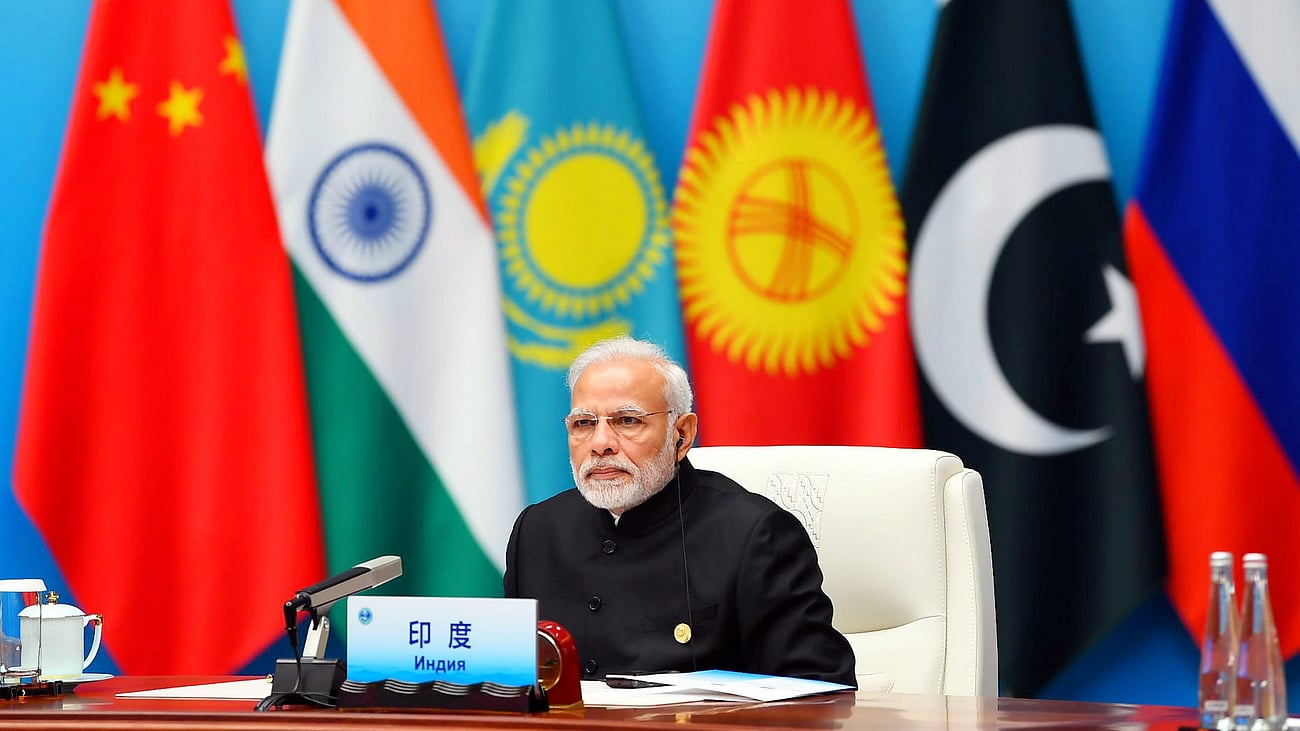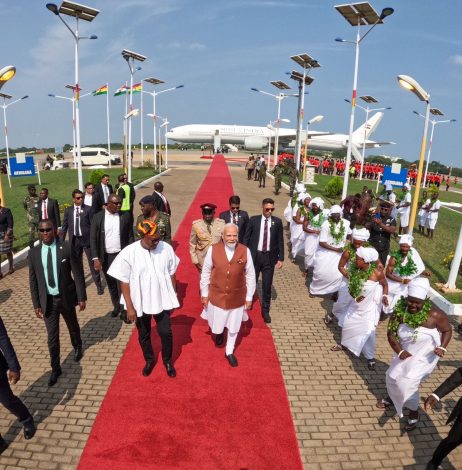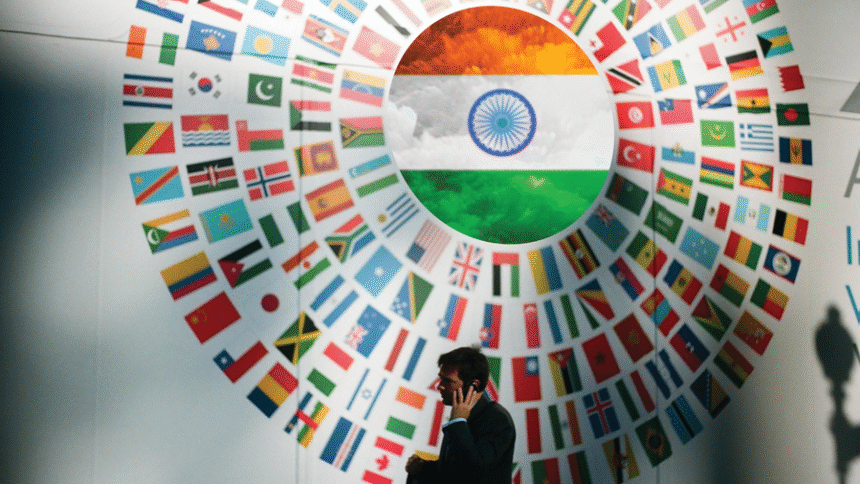Introduction: A Shifting Global Narrative
Whether this is the time when geopolitical alliances are increasingly under scrutiny, when trade wars have changed the nature of alliances, and when the multilateral system is heavily burdened, the phrase Global South has picked up another momentum. It can be used in the general sense of being developing countries around Asia, Africa and Latin America most of whom have similar histories of colonialism, development issues as well as the hope of having a fair world. Amidst them, India, the most populous democracy in the world and an emerging economic giant has slowly taken a stance as a possible leader or rather, the voice of the Global South.
And so is this aspiration based on rhetoric or it is backed up by actual capability, strategic diplomacy and moral credibility? In what way can India with more than 100 countries, most of which have different challenges and varying priorities, make their interests, hopes and grievances?
In this article, the changing role of India as the voice of the Global South, its strengths and its expectations and more importantly the contradictions as well as the way forward will be discussed.
Historical Context: A Role Shaped by Legacy
The connection between India and the Global South is not a recent one. It is traced to the Non-Aligned Movement (NAM) and the Bandung Conference of 1955, where India, led by Prime Minister Jawaharlal Nehru, collaborated with such countries as Egypt, Indonesia, and Yugoslavia to establish a non-aligned bloc that was neither anti-communist, (referred to as Western capitalist bloc), nor pro-communist (the Soviet communist block).
The message at the time was provided by India, which emphasized that newfound free countries had their right to a free choice that should not be brought into the opposing worlds of cold war. This idealistic moral position paid India off in gaining recognition the world over, particularly in being an idealistic position by other fellow post-colonial nations.
Skip to nowadays, the Indian economy is no longer a weak nation but the second-largest in the globe ranked by GDP with a stable democracy and the rising technological influence. Nonetheless, the representation of the marginalized and underrepresented in society is core to its international character.
India’s Case for Leadership: Why the Global South Listens
1. Demographic and Economic Weight
India is a country populated by more than 1.4 billion people, a major part of the population of the Global South. Being the fifth-largest economy, yet the fastest-growing in the group of twenty economies, India is the scale and an indication of the dreams of the developing world. Its emerging middle class, thriving digital economy, and advancements in areas such as pharmaceuticals and space technology reflect a model of development that others may peer at and, in some aspects, copy…
2. Diplomatic Reach
The two-year diplomatic calendar of India has been flooded with engagements which are Global South centered. Notably:
In India, the 2023 Voice of the Global South Summit was attended by more than 120 countries. It was a political masterstroke which refocused India as a conductor of Southern solidarity.
India has also been working to promote reforms within various international platforms like G20, UN General Assembly, BRICS, climate finance, tech transfer, vaccine equity, inclusive development financing, etc.
3. Moral Credibility
India presents itself as a benign power, the opposite of the agendas-laden selves that countries like China often come with (they are portrayed as being driven by diplomacy and debt) or the historically exploitative Western nations that they are accused of being. Its publicity has put a premium on collaborating rather than on patronizing.
Following the COVID-19 pandemic, the Indian Vaccine Maitri program has provided millions of doses to Africa, Southeast Asia, and Latin America, dispensing a demonstration of goodwill that was much more than a fig leaf.
Challenges to India’s Leadership Ambitions
Though the vision appears captivating, certain structural and strategic challenges raise the issue of fortune of Indian leadership.

1. Domestic Contradictions
What can India do to preach on food security, poverty reduction and climate injustice to others, when it has its own domestic problems to solve? Poverty continues to exist among millions and inequalities remain in regions, caste and gender lines. Opponents say that India needs to solve its domestic development gaps more decisively before it can become a world player.
2. Strategic Ambiguity
The increasing proximity between India and the United States and the West, and especially through groups such as QUAD, occasionally causes its image to dim as a prototype of Global South leadership. The multi-alignment strategy of India is usually perceived by nations with apprehension about the western hegemony as inconsistent.
In addition, the conservative attitude of India towards conflicts in the world like the war in Russia and Ukraine and the molasses relations with Israel when tensions take place in the Middle East has made India to diplomatically fence-sit at times, which has frustrated both the West and the South.
3. China’s Shadow
China is a powerful contender in the Global South. As a result of its Belt and Road Initiative (BRI), intense financing of infrastructure projects, and extensive diplomatic machinery, it has considerable sway, notably in Africa and Central Asia. The dangers of debt traps notwithstanding, numerous countries are resorting to Beijing to get their infrastructure problems and financial shortages solved swiftly.
The legacy of the Chinese presence has to be reckoned with by the Indian leadership, who intend to position themselves as the more moral option.
Voicing the Global South: Beyond Symbolism
Unless India is genuinely harboring aspirations of representing the Global South, then it is not sufficient to rehearse symbolic makeover. It has to be ready to be in the lead in terms of policy making, alliances and principled advocacy. These are some points upon which India can extend its influence more so:

1. Institutional Leadership
India can compel the establishment of a permanent Global South Secretariat or a Development Bank Consortium to rival the supremacy of the likes of IMF and World Banks. It also does not rule out a path that would aim to make the UN Security Council more representative, lobbying with its own Haitian bid and with the side demand that African and Latin America seats be created.
2. Technology as Development
In India, the digital public infrastructure framework, especially the digital Aadhaar-powered service delivery platform and UPI payments framework, has gained accolades across the world. It is arguably more dignified and less costly to help close the development gap by providing technological templates, and digital cooperation to smaller economies.
3. Climate and Sustainability
India is capable of promoting the issue of climate justice. It has also shown a principle of responsibility of common but differentiated. Since disproportionate climate damage is being experienced by many Global South countries, with less resources at their disposal, India should play a central role in determining equitable carbon financing systems.
4. Crisis Response
Whether it comes to pandemics, food security or even shortage of energy, the humanitarian and logistic response of India is strong at the right time. Active support, both verbal and practical, is what forges lasting alliances.
The Moment is Now
India finds itself at an important crossroad in world history. The new world order after the pandemic, redesign of global coalitions, the reaction to Western-centric economic systems, and the establishment of multipolarity create the room for new leaders to appear.
India can easily occupy this position due to its democratic spirit, a culture of pluralism, and the desire to develop as a country. Yet only a voice of an ambition will be counted on only when it resounds sincerity, consistency, and common experience rather than ambition.
India needs to hear, in-depth, on active mode, and in an inclusive manner in order to speak on behalf of the Global South. And once it has, it need not merely be a voice, but the conscience of a world only now seeking fairness, balance and justice.









